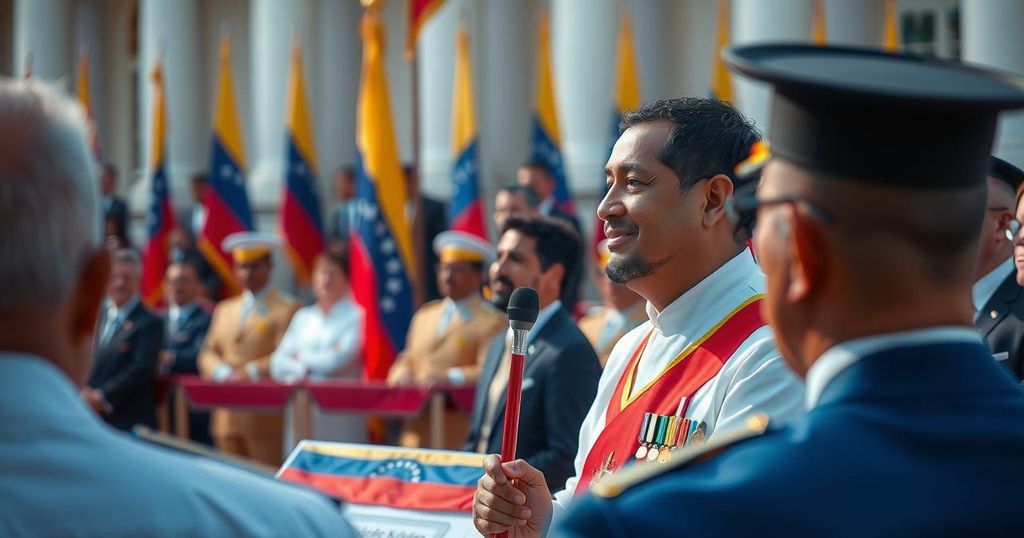Amidst significant electoral disputes, Nicolás Maduro is set to be inaugurated in Venezuela today, lacking international support and amidst claims of electoral fraud. Opposition leader Edmundo González asserts his victory and plans to return to take the presidency, leading to a heightened sense of uncertainty in the political climate.
Nicolás Maduro is poised to be sworn in as president of Venezuela today, yet he will do so without the presence of prominent foreign dignitaries and amidst significant controversy regarding the legitimacy of his electoral victory. Several months of international calls for electoral transparency have gone unheeded, leading many to perceive his upcoming inauguration as a fraudulent act. In contrast, opposition candidate Edmundo González claims to have authentic electoral data indicating his landslide victory in multiple states, data corroborated by reputable organizations like the Carter Center and the Organization of American States (OAS).
As the day unfolds, attention will likely shift towards González, who plans to return to Venezuela to assume the presidency. Despite the grim atmosphere surrounding the event, which has seen increased military presence and the arrest of opposition figures, González’s determination remains steadfast. Recently, he has faced various challenges, including surveillance and speculation about his potential actions upon his return.
Authorities in Venezuela have intensified their efforts to suppress dissent, resulting in arrests of activists and opposition leaders in the lead-up to the inauguration. María Corina Machado, a prominent figure in the opposition, has also experienced harassment, culminating in a politically charged atmosphere as she urged her supporters to rally against Maduro’s inauguration.
Although some international representatives are set to attend the ceremony, it is important to note that many do not officially recognize Maduro’s regime. The situation has escalated tensions, with previous attempts at mediation by Brazil, Colombia, and Mexico yielding no substantial progress. The world watches as Caracas fills with anticipation and uncertainty regarding the legitimacy of leadership in Venezuela and the future for its citizens.
The political landscape in Venezuela has become highly charged due to Nicolás Maduro’s contentious regime and disputed elections. Maduro’s administration has faced considerable international scrutiny following his latest electoral victory, which many are labelling as fraudulent. Opposition leader Edmundo González has emerged as a significant challenger, asserting his own claims of electoral success backed by verified records. Amidst accusations of election manipulation and government repression of dissent, the societal and international repercussions of this political crisis have garnered widespread attention.
As Nicolás Maduro prepares for his inauguration, the stark divide between his administration and the opposition encapsulates the ongoing political crisis in Venezuela. The absence of international recognition of Maduro’s presidency, alongside Edmundo González’s assertive claims to power, highlights the uncertainty surrounding Venezuela’s future governance. The situation remains volatile, marked by governmental repression against opponents, raising fundamental questions about democracy and legitimacy in the country.
Original Source: english.elpais.com






